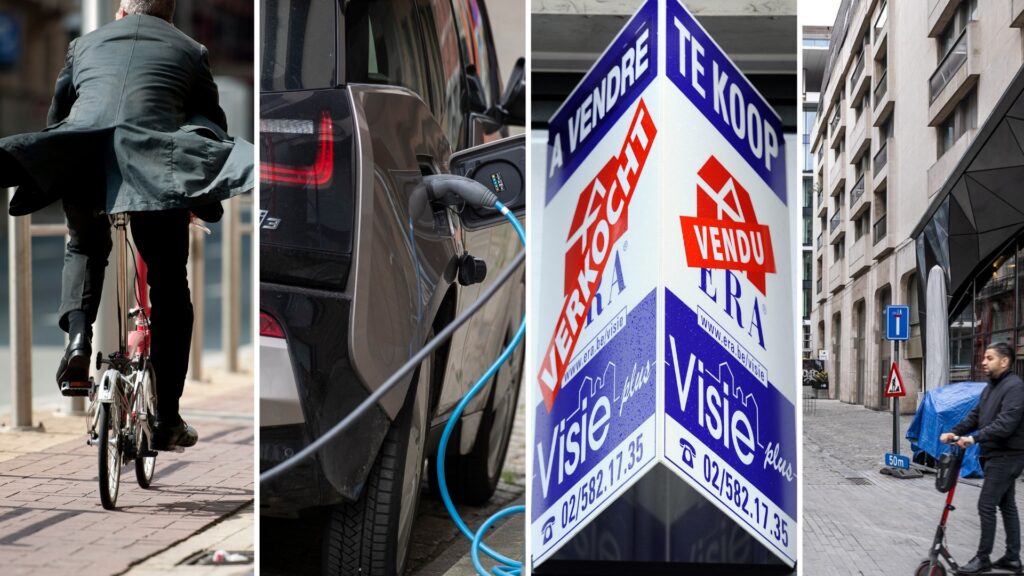The mobility budget allocated to employees who trade in their company car has gained popularity since its inception, but overall is still seeing limited use. And when it is used, it mostly goes to paying off housing loans or rent.
For almost five years now, employers have allowed their employees to exchange their entitlement to a company car for a budget they can use to buy more sustainable transport options such as an electric car or a bicycle, or a train, bus or shared vehicle subscription, as well as reimbursement of housing costs for those living within 10 kilometres of their work or teleworking more than half the time.
This latter option is proving to be the preferred way of spending. "In 2023, 77% of employees used their mobility budget for housing costs," Audrey Stampaert of Mbrella, a digital HR mobility platform, said. In 2021, the figure was "just" 45%, while in 2022 more than half (52%) used it for this purpose.
In second place comes spending the budget on bicycles (either the purchase of a bicycle or a shared bicycle subscription).
Slow take-off
The use of the mobility budget almost tripled between 2022 and 2023, but the total number of people using it remains minimal. The number of employees in Belgium using the budget rose from around 3,900 in 2022 to 9,153 last year. Proportionally, this equates to a rise of 0.2 to 0.4%.
The number of companies offering the legal mobility budget to their employees rose from 443 in 2022 to 852 in 2023. The median amount of the mobility budget increased by 30% in 2023 to €7,800.
Trading in the offer of a company car is most successful among employees aged between 25 and 35, especially if there are sufficient alternatives available, such as in the cities. This is clear in Brussels, where 3.5% of employers offer a mobility budget, compared to 1% in Flanders and 0.8% in Wallonia.
HR mobility platforms argued that the slow take-off was due to complex regulations when it was introduced and the Covid-19 crisis that kept employees at home en masse. "The turnaround now seems to have begun."
"We see employers responding to a growing demand for flexibility among their employees and candidate employees. In terms of remuneration, working from home versus working in the office, but also in terms of mobility, employees want to choose much more how they get around," Eefje Dulsster, Manager Bonus and Flexible Compensation at HR company Attentia said.
A new royal decree was enforced at the start of this year to further facilitate the introduction of mobility budgets, which is expected to ensure even stronger growth in supply and use.
Limit to real shift
However, experts in sustainable mobility argue that barriers remain. Now only those already entitled to a company car can opt for the mobility budget. To employees who do not have that right, the choice is often limited to public transport season tickets or a bicycle allowance.
A group of 15 actors in the field of mobility and HR have therefore advocated for extending the mobility budget to all white-collar and blue-collar workers, including those not currently entitled to a company car.
"To make a real shift towards sustainable mobility, it is necessary to make the alternatives to a fossil-fuelled car as accessible and attractive as possible. That is exactly what the mobility budget does," Peter Van der Perre, Managing Director of ITS.be, concluded.

